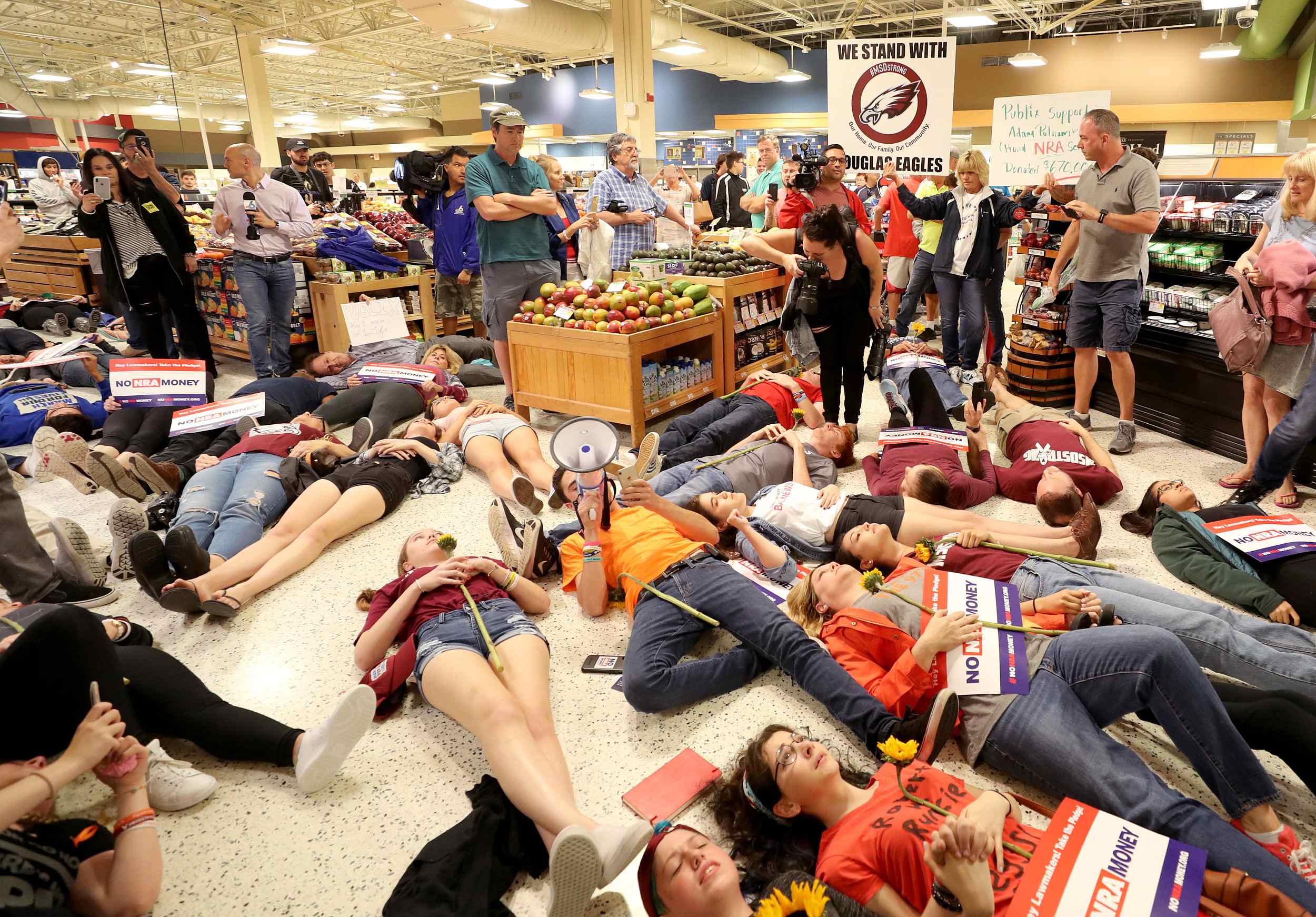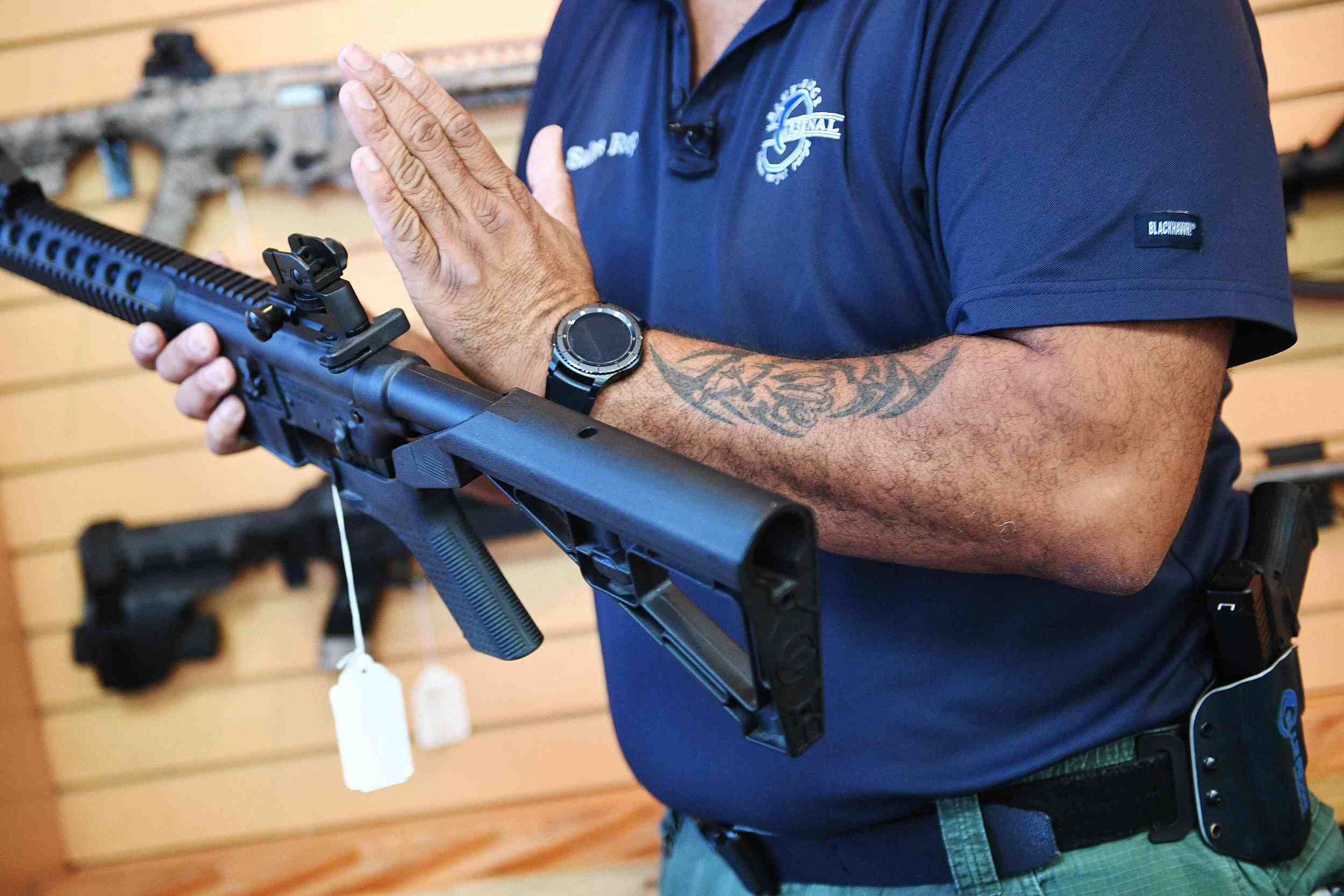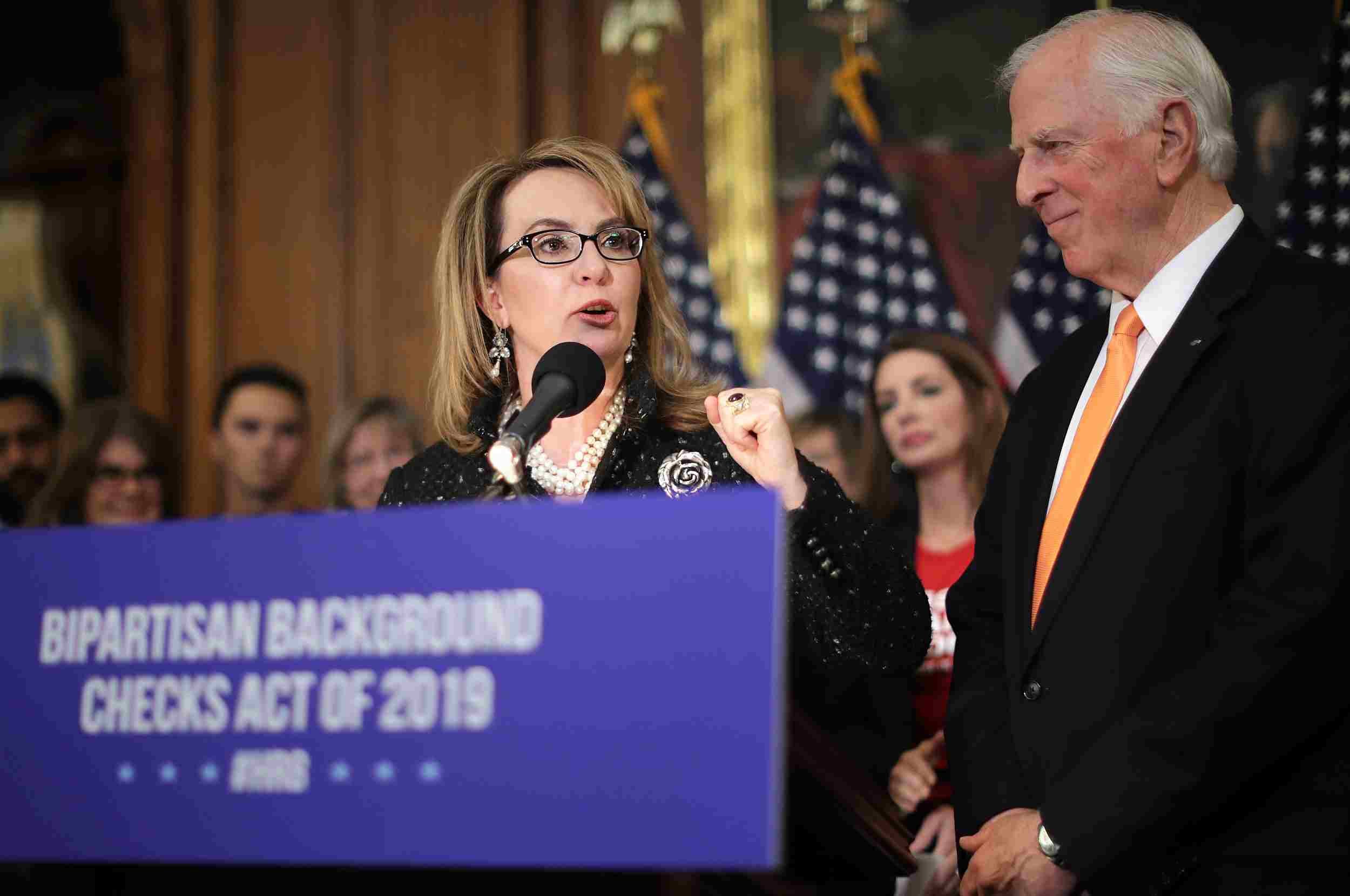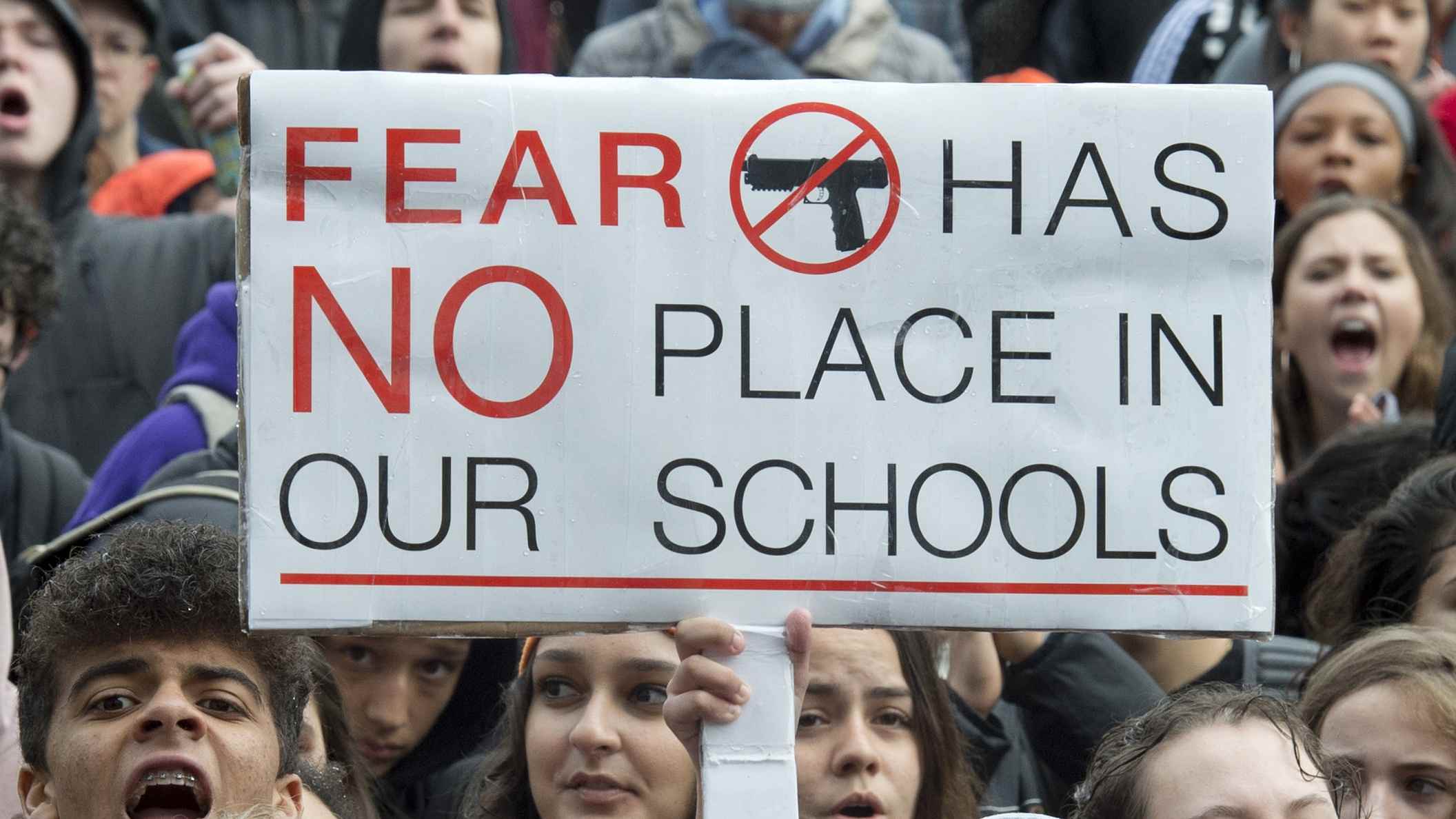One year ago, on Valentine's Day 2018, a 19-year-old gunman entered the Marjory Stoneman Douglas high school in Parkland, Florida and opened fire, killing 17 students and staff.
While mass shootings have become a regular occurrence in the U.S., the Parkland incident inspired a hitherto unseen mobilization over gun legislation, spearheaded by the very students who escaped the bullets on February 14.
Regular media appearances, a nationwide rally that drew hundreds of thousands, and repeated efforts to lobby politicians ensured the issue remained high on the agenda in state capitals and in Congress.
But how much has actually changed over the past year?
March on Washington
Neither the worst shooting the U.S. had seen nor even the deadliest to take place in a school, Parkland nevertheless galvanized opinion like no other such incident had, in large part thanks to the activism of the students of Marjory Stoneman Douglas high school.

Students from Marjory Stoneman Douglas High School stage a 'die in' at a Publix supermarket in Coral Springs, Florida, May 25, 2018. /VCG Photo
Students from Marjory Stoneman Douglas High School stage a 'die in' at a Publix supermarket in Coral Springs, Florida, May 25, 2018. /VCG Photo
A week after the shooting, they confronted lawmakers in the Florida State Capitol over lax gun legislation.
On March 24, they led a March for Our Lives in Washington, DC that drew an estimated one million people, as well as hundreds of sister protests around the country and even abroad.
Ahead of U.S. midterms in November, they pushed for wider voter registration, hoping to get politicians sympathetic to their cause elected.
And they quickly scored small victories. A supermarket chain that had backed a gubernatorial candidate allied to the powerful U.S. gun lobby the National Rifle Association, announced it would halt political contributions after Parkland students staged a protest at two of its Florida stores and threatened a boycott.
New legislation
More importantly however, the mass mobilization in favor of tighter gun control helped push through changes at the legislative level.
Florida's state legislature passed a bill last March raising the minimum age for buying a gun, imposing a waiting period for purchases, and banning the sale of so-called bump stocks that allow a rifle to fire more rapidly.
In all, 26 states approved new gun legislation in 2018 – introducing background checks, restricting concealed carry laws and keeping guns away from domestic abusers, people with severe mental health issues and convicted felons – according to the Giffords Law Center to Prevent Gun Violence.

A sales manager shows a bump stock installed on an AR-15 rifle at Blue Ridge Arsenal in Chantilly, Virgina, October 6, 2017. /VCG Photo
A sales manager shows a bump stock installed on an AR-15 rifle at Blue Ridge Arsenal in Chantilly, Virgina, October 6, 2017. /VCG Photo
At the federal level, the Trump administration announced in December a nationwide ban on bump stocks starting in March 2019.
Activists in Florida are now trying to get a proposal banning military-style weapons and semi-automatic rifles on the ballot in the November 2020 election – allowing voters to have a say on the matter.
In Washington, DC, a bill calling for universal background checks when purchasing a firearm is awaiting a vote in the House.
In another notable development, the U.S. Congress held last month its first hearing on gun violence since 2011.
One year on…
The debate rages on. Even among the families of those killed at Parkland, there is disagreement about the best course of action, with some advocating a total ban on certain firearms, others in favor of arming teachers to make schools safer, and others still insisting they do not want to take anyone's guns away but just want safer rules on sales and possession.
Efforts are already underway to reverse some of the tighter legislation passed in the last 12 months.
Implementation of the ban on bump stocks has also proven tricky in Florida, while in Washington state, sheriffs are refusing to enforce new gun laws.

Former Arizona Congresswoman Gabby Giffords (C) joins Rep. Mike Thompson (R), chair of the Gun Violence Prevention Task Force, and other gun violence survivors and safety advocates for a news conference to introduce legislation to expand background checks for firearm sales in Washington, DC, January 8, 2019. /VCG Photo
Former Arizona Congresswoman Gabby Giffords (C) joins Rep. Mike Thompson (R), chair of the Gun Violence Prevention Task Force, and other gun violence survivors and safety advocates for a news conference to introduce legislation to expand background checks for firearm sales in Washington, DC, January 8, 2019. /VCG Photo
President Donald Trump, meanwhile, has shrunk back from promises for stricter federal gun regulations that he made in the days following the Parkland shooting.
Still, the issue has remained in the spotlight – helped by the election in November of a number of gun-control proponents at state and federal level.
Further legislation – including the vetting of prospective buyers, mandatory locks and limits on ammunition purchases – is currently being debated in states like New Mexico and Oregon.
No time for celebration
The one-year anniversary of the Parkland shooting is due to be a subdued affair.
Survivors and families of the victims have said they want it to remain a day of mourning, not of protest.

CGTN screenshot of Twitter
CGTN screenshot of Twitter
The March for Our Lives group, which has chronicled efforts to combat gun violence over the past year, announced on Twitter that it would be "going dark for four days" to remember those killed.
In Washington, DC, legislators held a moment of silence in the House on Wednesday.






